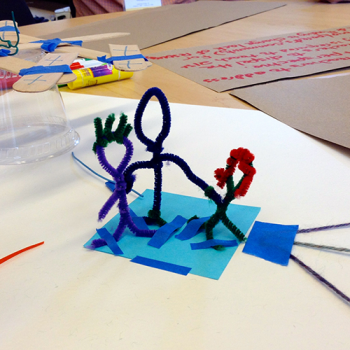
Uncovering students’ thinking about thinking using concept maps
PUBLISHED:AUTHORS: Ron Ritchhart, Terri Turner, Linor Hadar
Resource Summary
Abstract: A method for uncovering students’ thinking about thinking, specifically their meta-strategic knowledge, is explored within the context of an ongoing, multi-year intervention designed to promote the development of students’ thinking dispositions. The development of a concept-map instrument that classroom teachers can use and an analytic framework for interpreting students’ responses is presented. In a preliminary study, the concept map instrument is piloted to evaluate changes in students’ conceptions of thinking after a year’s participation in classrooms where their teachers actively sought to make thinking more visible by noticing and naming the thinking observed as well as introducing and using thinking routines (Ritchhart and Perkins. Educational Leadership, 65(5), 57–61 2008). Concept maps from 239 students from grades 3 through 11 were analyzed. Results suggest that students’ conceptions of thinking do improve with age but also can be substantially developed through a classroom culture where thinking is modeled and rich opportunities for thinking are present. The concept map instrument itself proved to be a robust instrument for uncovering students’ thinking about thinking.


-
-
-
-
-
-
Support PZ's Reach